Ukraine has held five democratic elections in the past 20 years, while Russia has had none. Yet now, reports suggest Moscow is demanding elections in Ukraine as part of a so-called “peace plan.” But when was the last time Russia held a fair election?
A senior White House correspondent for Fox News shared an unconfirmed three-point “peace plan” on February 18, 2025, proposing a ceasefire, elections in Ukraine, and a final agreement. The election aspect drew the most attention, as Russian leader Vladimir Putin refuses to negotiate with Ukrainian President Volodymyr Zelenskyy, calling him “illegitimate” due to postponed elections under martial law—imposed as a result of Russia’s full-scale war in Ukraine. However, Zelenskyy has stated he does not oppose elections if security conditions are met.
The report cites multiple foreign diplomatic sources claiming the US and Russia view new elections in Ukraine as essential to a settlement. The idea is already contentious—Russia has not held a fair election in at least 20 years, and Ukrainians reject the prospect of a pro-Russian puppet president.
— UNITED24 Media (@United24media) February 19, 2025
Yet, despite its history of rigged elections, Russia is suddenly fixated on Ukraine’s democracy. According to these sources, Putin sees a strong chance of installing a more compliant leader, while Trump appears open to any outcome, even a pro-Russian figure. Both reportedly doubt Zelenskyy’s re-election prospects—though recent polls put his approval rating at 57%.
With that in mind, let’s take a closer look at Russia’s election history and how it compares to Ukraine’s.
A brief history of modern Russian elections
1991 – Boris Yeltsin was elected as the first President of Russia.
1996 – Boris Yeltsin re-elected.
2000 – Vladimir Putin was elected.
2004 – Vladimir Putin re-elected.
2008 – Dmitry Medvedev was elected (Putin became Prime Minister).
2012 – Vladimir Putin returned to the presidency.
2018 – Vladimir Putin re-elected for a fourth term.
2024 – Vladimir Putin re-elected for a fifth term.
Since the Russian Federation’s establishment in 1991, the country has held eight presidential elections. Over the last 25 years, one man—Vladimir Putin—has dominated Russia’s so-called “electoral politics.”
While the 1991 and 1996 elections were relatively competitive, every election since 2000 has been increasingly rigged, with opposition candidates barred (or killed), state-controlled media, and widespread fraud.
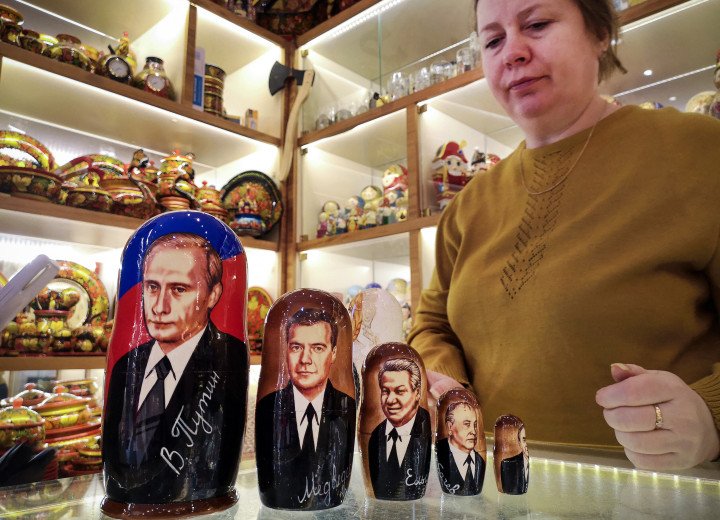
When Putin was first elected president in 2000, few questioned the legitimacy of his victory. His approval ratings were high, and Russia was still experiencing a brief window of political openness after the chaotic 1990s.
His 2004 re-election was also seen as credible, though concerns about media control and political pressure on opponents had already begun to emerge. However, as his second term ended in 2008, Putin faced a constitutional limit preventing him from serving three consecutive terms.
Rather than step aside, he orchestrated a political maneuver: He appointed Dmitry Medvedev president while taking over as prime minister.
Though Medvedev was technically in power, Putin never truly relinquished control. In 2011, Medvedev publicly admitted that he and Putin had planned all along for Putin to return to the presidency.
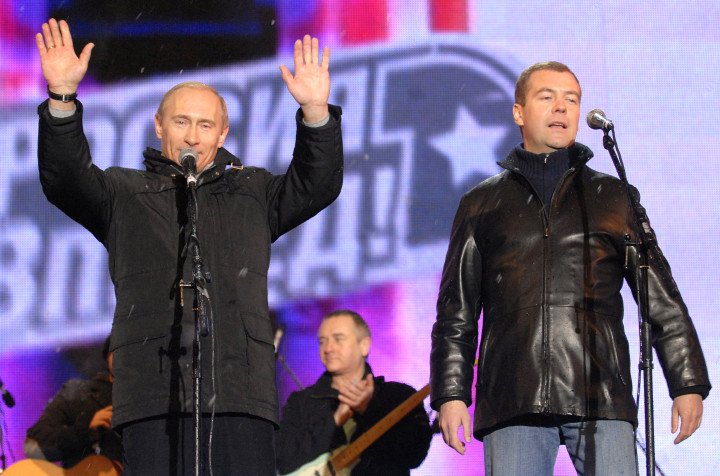
That transition came in 2012 when Putin ran for president again, now with an extended six-year term. The election was marred by widespread fraud, documented ballot stuffing, and reports of manipulated results.
Protests erupted across the country, culminating in the Bolotnaya Square demonstrations, one of the largest waves of dissent Russia had seen since the fall of the Soviet Union. Tens of thousands of Russians took to the streets in Moscow, demanding free elections. The response was swift and brutal—mass arrests, show trials, and long prison sentences for key activists.
From that moment, any remaining pretense of political pluralism in Russia was systematically dismantled. Repression against dissent intensified, and new totalitarian laws were introduced, criminalizing criticism of the government and restricting public gatherings.
Opposition leaders and activists faced increasing persecution. One of the most shocking moments came in 2015, when Boris Nemtsov, a leading opposition figure and vocal critic of Putin, was assassinated just steps away from the Kremlin. Many saw his killing as a clear warning to other opposition figures.
As Putin’s second consecutive term was set to expire in 2024, many speculated how he would extend his rule. In 2020, he pushed through constitutional amendments that reset his presidential term limits, allowing him to potentially remain in power until 2036.
These changes were passed through a highly controlled referendum, with reports of mass voter coercion and ballot-stuffing. By the 2021 legislative elections, the Kremlin’s control over the political system was nearly absolute—Putin’s United Russia party secured victory through fraud, intimidation, and the exclusion of opposition candidates.
A video allegedly shows a Russian soldier in occupied territory pressuring civilians to vote a certain way.
— UNITED24 Media (@United24media) March 16, 2024
pic.twitter.com/OmVnvZzMUk
By 2024, the Russian election process had become meaningless. Independent analysis estimated that between 22 million and 36 million votes cast for Putin in the 2024 presidential election were falsified. The Kremlin ensured that no real opposition remained, further entrenching Putin’s rule.
Putin also moved aggressively against independent media. In March 2022, shortly after launching the full-scale invasion of Ukraine, he signed laws criminalizing independent war reporting.
Over 150 journalists fled Russia, and nearly all independent media outlets were either shut down or taken over by the state. By April 2022, Russia’s press freedom had been almost completely erased, leaving only state-controlled propaganda.
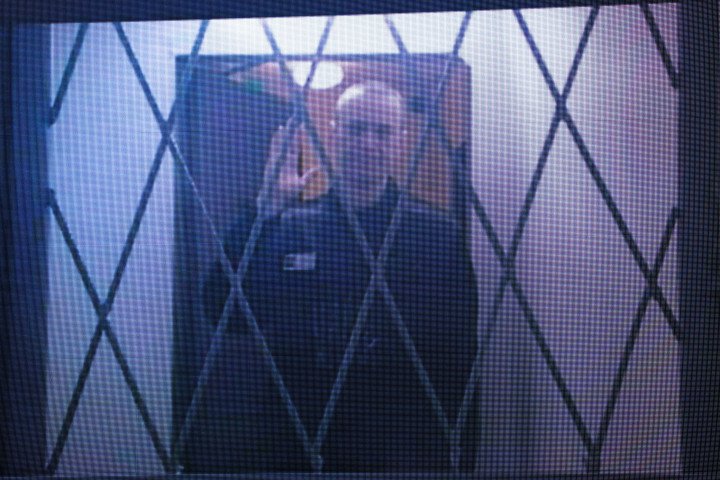
Political repression reached its peak with the murder of Russian politician Alexei Navalny in 2024. Navalny, who had survived an attempted poisoning in 2020 and continued to challenge Putin’s regime despite imprisonment, was killed in an Arctic penal colony.
His death was a message—there were no longer any limits to what Putin would do to silence opposition. Navalny’s allies, including his lawyers, were also sentenced to prison terms, further ensuring that no viable opposition remained in Russia.
Over the course of 25 years, Putin’s rule has evolved from electoral legitimacy to total authoritarian control. What began as a presidency backed by public support has become a regime maintained through electoral fraud, suppression of free speech, and the elimination of political opposition. Any illusion of democracy in Russia has long since disappeared, leaving a system designed to keep Putin and his cronies in power indefinitely.

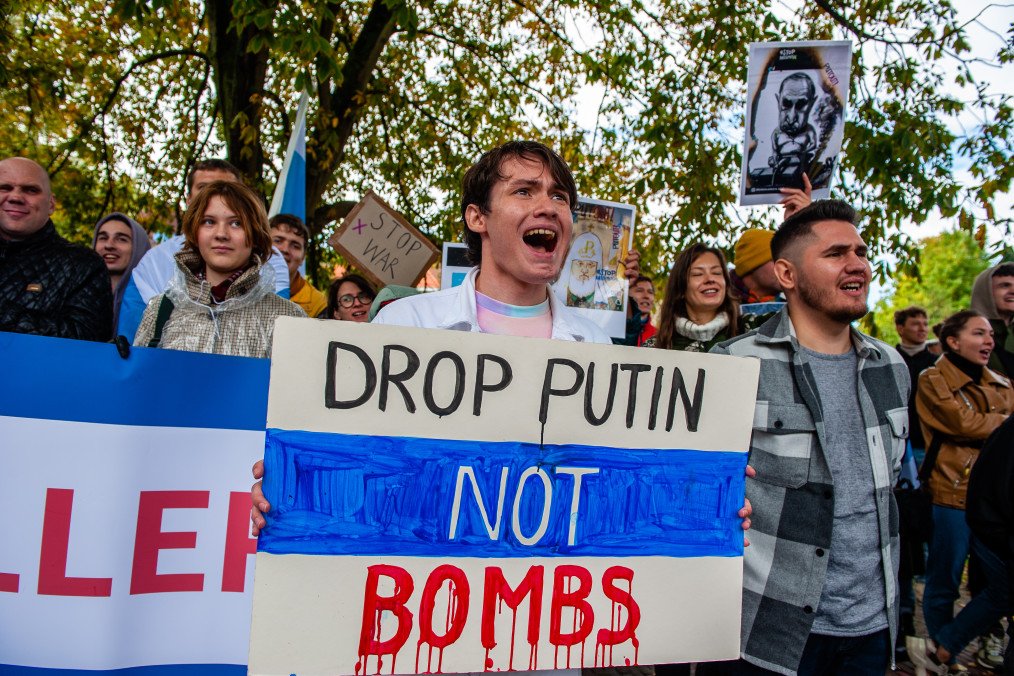
-3db1bc74567c5c9e68bb9e41adba3ca6.png)

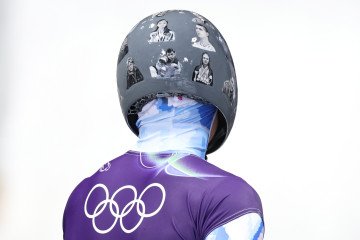
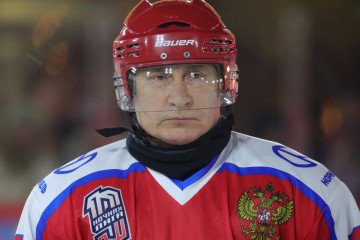
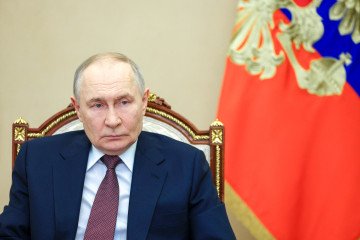
-f88628fa403b11af0b72ec7b062ce954.jpeg)